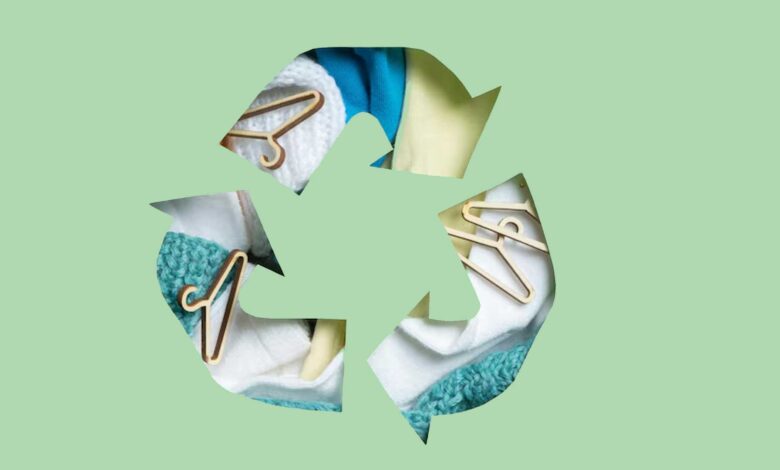Recycled Fabrics

Breathing New Life into Fashion

In recent years, the fashion industry has witnessed a notable shift towards sustainability. With increasing awareness about environmental issues, consumers are demanding ethically produced clothing that minimizes harm to the planet and promotes fair labour practices. One signifcant aspect of sustainable fashion is the use of recycled and organic fabrics. These innovative materials not only reduce waste but also offer unique benefits to both the environment and the wearer.
Recycled fabrics have emerged as a powerful solution to reduce the environmental impact of the fashion industry. These fabrics are created by transforming post-consumer waste, such as plastic bottles, discarded textiles, and fshing nets, into new textile fbres. This process significantly reduces the need for virgin materials and minimizes waste sent to landfills.
Additionally, regular exercise increases blood flow, which provides the skin cells with vital nutrients and oxygen. An individual’s overall attractiveness can be enhanced by the more radiant complexion and youthful glow that can follow from this. Physical wellbeing and beauty are related in this way. Fitness is important for improving self-confidence and self-esteem and goes beyond physical attractiveness. Endorphins, or “feel-good” hormones, are released during regular exercise, which improves mood and lowers stress levels. People who feel confident about themselves mentally and emotionally project an air of assurance that might heighten the perception of their beauty.
One popular example of a recycled fabric is recycled polyester, also known as rPET. This material is made by melting down plastic bottles and transforming them into polyester fibres. It has become increasingly prevalent in the fashion industry due to its durability, wrinkle resistance, and moisture-wicking properties. By opting for clothing made from recycled polyester, consumers can actively contribute to waste reduction and resource conservation.
Organic fabrics, derived from plants grown without the use of synthetic pesticides and fertilizers, offer an eco-friendly alternative to conventional textiles. These materials are cultivated using environmentally responsible practices that prioritize soil health and biodiversity conservation.
One of the most popular organic fabrics is organic cotton. Compared to conventional cotton, organic cotton production requires signifcantly less water and energy. Additionally, it promotes healthier ecosystems by avoiding the use of harmful chemicals. Organic cotton is used to create a wide array of clothing items, from everyday basics to luxurious garments, ensuring a sustainable and comfortable wardrobe.
Another remarkable organic fabric is linen, made from the fax plant. Linen is highly sustainable, as it requires minimal water and pesticides to grow. It possesses exceptional breathability, making it ideal for warm-weather clothing. Linen garments are not only stylish but also long-lasting, ensuring a sustainable addition to any wardrobe.
The Benefits of Sustainable Fashion
Opting for sustainable fashion made from recycled and organic fabrics offers numerous benefts for both the environment and the wearer. By supporting brands that prioritize these materials, consumers contribute to the reduction of waste, the conservation of resources, and the protection of ecosystems. Additionally, these fabrics often have a lower carbon footprint than their conventional counterparts, mitigating the impact of climate change.
For consumers, sustainable fashion provides an opportunity to express personal style while aligning with ethical values. Recycled and organic fabrics often offer superior quality and durability, ensuring long-lasting garments that can be cherished for years to come. Moreover, these fabrics are generally free from harmful chemicals, reducing the risk of skin allergies and other health concerns.
The emergence of recycled and organic fabrics has transformed the fashion industry, offering sustainable alternatives that prioritize both style and environmental responsibility. By choosing clothing made from these innovative materials, individuals can actively contribute to waste reduction, resource conservation, and the protection of ecosystems. Embracing sustainable fashion is not only a step towards a greener future but also an opportunity to promote ethical practices and nurture personal style. Let us dress in a fashion that cares for our planet and ourselves.


